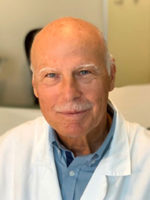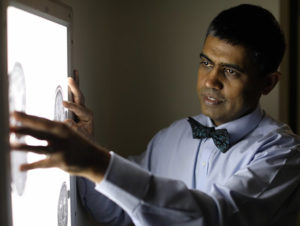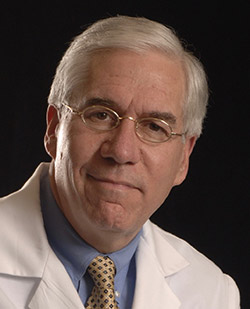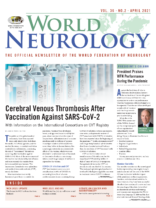By Wolfgang Grisold, James L. Bernat, and Tissa Wijeratne

Wolfgang Grisold
In this edition of World Neurology, we will continue to present one committee and one specialty group, to explain the various activities of the WFN. In short, and as a wrap-up from the previous articles, the WFN has committees, which are dedicated to specific tasks, and 16 specialty groups, formerly known as Applied Research Groups, which are working groups dedicated either to specific health issues and diseases or to other relevant topics.
In this issue, we introduce the WFN Public Awareness & Advocacy Committee, which has the important agenda to organize World Brain Day, among others, and from the Specialty Groups, the Neuroethics specialty group, which has been newly activated and composed.
For details, please see Committees at https://wfneurology.org/about-us/committees and Special Groups ( SG) at https://wfneurology.org/about-us/global-networks/wfn-specialty-groups.
WFN Public Awareness & Advocacy Committee

Tissa Wijeratne
Prof. Tissa Wijeratne chairs this committee and the complete list of members is on the website. Prof. Wijeratne is the chair of the Department of Neurology, Sunshine Hospital, Western Health, Faculty of Medicine, Melbourne Medical School, Sunshine Campus, St Albans, Victoria, Australia (https://whcda.wh.org.au/research/neurology-research/). He has recently been appointed as the editor in chief of neurology international, MDPI with a special collection on advocacy in neurology and brain health.
The important task of advocacy and public awareness is to raise public awareness of neurological disorders. The World Federation of Neurology was established on July 22, 1957. The Public Awareness and Advocacy Committee suggested that July 22, 2014, should be celebrated as World Brain Day (WBD). This proposal was announced at the World Congress of Neurology Council of Delegates meeting in Vienna on Sept. 22, 2013, and the proposal was received with a warm welcome by delegates. The Board of Trustees meeting in February 2014 endorsed this proposal as an annual and ongoing activity.
The main objective of WBD is to increase public awareness and promote advocacy related to brain health. The theme for the 2014 WBD campaign was “Our Brain, Our Future.” The WBD 2015 campaign was dedicated to epilepsy (with the International League Against Epilepsy). The 2016 WBD campaign was “Brain Health and the Aging Population,” and the 2017 WBD campaign was dedicated to stroke (with the World Stroke Organization). The WBD 2018 topic was “Clean Air for Brain Health” (with the Specialty Group on Environmental Neurology). WBD 2019 was dedicated to migraine (with the International Headache Society), and WBD 2020 was devoted to ending Parkinson’s disease (with the Movement Disorders Society). WBD 2021 will be “Halt Multiple Sclerosis.”
The committee is responsible for the WBD campaign under the leadership of the trustees, the secretary-general, and the WFN president. The committee collaborates with the regional associations, including the African Academy of Neurology, the American Academy of Neurology, the Asian and Oceanian Association of Neurology, the European Academy of Neurology, the Pan-American Federation of Neurological Societies (PAFNS), the Pan Arab Union of Neurological Societies, and national neurology member societies, to raise awareness among neurological disorders with a successful WBD campaign year after year.
The committee is keen to promote the brain health initiative and public awareness campaigns to promote better awareness and advocacy for neurological disorders globally.
Neuroethics Specialty Group

James L. Bernat
This group is chaired by Prof. James L. Bernat. He is professor of neurology, active emeritus and former Louis and Ruth Frank Professor of Neuroscience at the Dartmouth Geisel School of Medicine in Hanover, New Hampshire. He is the author of Ethical Issues in Neurology, 3rd edition (Philadelphia: Lippincott Williams & Wilkins, 2008).
Neuroethics Specialty Group Resumes Work
In November 2019, the former WFN Ethics Specialty Group was reborn as the Neuroethics Specialty Group. Under the leadership of James Bernat, members include Ralf Jox (Switzerland), Adam Zeman (U.K.), and Alejandro Serani Merlo (Chile). The WFN Ethics Specialty Group previously had operated under the leadership of Prof. Franz Gerstenbrand (Austria) until his death in 2017.
The Neuroethics Specialty Group has identified several activities. They created a neuroethics teaching course for the WCN 2021 meeting in October that will be offered on the first day. Dr. Eelco Wijdicks (USA) will speak on the ethical issues in brain death, and Dr. James Bernat will speak on the ethical issues of physician-assisted death and active euthanasia. Dr. Bernat is also working with Dr. Sabahat Wasti (UAE), the chair of the Neuroethics Special Interest Group of the World Federation of Neurorehabilitation, to develop a teaching conference on neuroethics for the meeting.
The Neuroethics Specialty Group supported the World Brain Death Project, a 5-year effort to generate international consensus on brain death, composed of dozens of investigators, led by Gene Sung (USA), David Greer (USA), and a steering committee. Although the project did not originate in the WFN, it had been a longstanding idea of Prof. Franz Gerstenbrand that he had discussed with Dr. Bernat in Vienna at the WCN 2013.
The World Brain Death Project report was endorsed by the WFN and 30 other neurological, neurosurgical, and critical care societies around the world [see Greer DM, Shemie SD, Lewis A, et al. Determination of brain death/death by neurological criteria: The World Brain Death Project. JAMA 2020;324:1078-1097, plus 17 supplements accessible on-line.]
The worldwide consensus developed in the World Brain Death Project represented an international group of leading neurologists, neurosurgeons, and intensivists but acknowledged that a minority of professionals in different countries oppose brain death for scientific, conceptual, ethical, religious, or cultural reasons.
The Neuroethics Specialty Group is considering initiating projects. Given their small size, they feel that the best use of their expertise will be collaborative: to offer ethical guidance to other specialty groups as they pursue their endeavors.
- Some ideas raised by members at the February 2021 Specialty Group meeting included:
- the ethical issues in incorporating personalized medicine into neurological practice
- the inherent ethical limitations on protecting patient privacy and confidentiality in genomic medicine
- the ethical issues raised in global access to neurological care the evolving global changes in assisted dying practices for neurological patients
- the role of individual differences in humans as a source of interpersonal conflict.
Presently, the Neuroethics Specialty Group is recruiting additional members, particularly from Asia and Africa. If WFN members have suggestions for new specialty group members or topics for the Neuroethics Specialty Group to address, please contact Dr. James Bernat at bernat@dartmouth.edu. •
